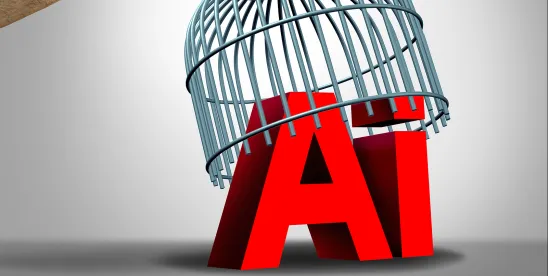On May 13, 2025, the U.S. Department of Commerce’s Bureau of Industry and Security (“BIS”) announced four significant policy developments under the Export Administration Regulations (“EAR”), affecting exports, reexports, and in-country transfers of certain advanced integrated circuits (“ICs”) and related computing items with artificial intelligence (“AI”) applications. These actions reflect the Trump administration’s first moves to address national security risks associated with exports of emerging technologies, and to prevent use of such items in a manner contrary to U.S. policy. Below is a summary of each development and its practical implications.
1. Initiation of Rescission of the “AI Diffusion Rule”
As explained in a press release, BIS has begun the process to rescind the so-called “AI Diffusion Rule,” issued in the closing days of the Biden administration and slated to go into effect on May 15. That rule would have imposed sweeping worldwide controls on specified ICs and set up a three-tiered system for access to such items by countries around the world. The rescission is intended to streamline U.S. export controls and avoid “burdensome new regulatory requirements” and strain on U.S. diplomatic relations.
It will be important to monitor developments for BIS’s anticipated issuance of the formal rescission and for the control regime that BIS will likely implement in its place. In the meantime, all IC-related controls preceding the AI Diffusion Rule remain in effect.
2. New End-Use Controls for Advanced Computing Items
BIS has issued a policy statement informing the public of new end-use controls targeting the training of large AI models. Specifically, the statement provides that the EAR may impose restrictions on the export, reexport, and in-country transfer of certain advanced ICs and computing items when there is knowledge or reason to know that the items will be used for training AI models for or on behalf of weapons of mass destruction or military-intelligence end-uses in or end-users headquartered in China and other countries in BIS Country Group D:5. Furthermore, U.S. persons are prohibited from knowingly supporting such activity.
This development underscores the importance of robust due diligence and end-use screening for companies involved in exports, re-exports, and transfers of such items, especially to Infrastructure as a Service providers.
3. Guidance to Prevent Diversion: Newly Specified Red Flags
To assist industry in preventing unauthorized diversion of controlled items to prohibited end-users or end-uses, BIS has published updated guidance identifying new “red flags” that may indicate a risk of such diversion. The guidance provides practical examples and scenarios, such as unusual purchasing patterns, requests for atypical technical specifications, or inconsistencies in end-user information. Companies are encouraged to review and update their compliance programs to incorporate these new red flags and to ensure that employees are trained to recognize and respond to potential diversion risks.
4. Prohibition of Transactions Involving Certain Huawei “Ascend” Chips Under “General Prohibition Ten”
BIS has released guidance regarding the use of and transactions in certain Huawei “Ascend” chips meeting the parameters for control under Export Control Classification Number (“ECCN”) 3A090, clarifying the application to such activities of “General Prohibition Ten” under the EAR. This prohibition restricts all persons worldwide from engaging in a broad range of dealings in, and use of, specified Ascend chips that BIS alleges were produced in violation of the EAR.
Regarding due diligence in this context, BIS has provided the following guidance:
If a party intends to take any action with respect to a PRC 3A090 IC for which it has not received authorization from BIS, that party should confirm with its supplier, prior to performing any of the activities identified in GP10 to ensure compliance with the EAR, that authorization exists for the export, reexport, transfer (in-country), or export from abroad of (1) the production technology for that PRC 3A090 IC from its designer to its fabricator, and (2) the PRC 3A090 IC itself from the fabricator to its designer or other supplier.
Key Takeaways for Industry
It is important to keep in mind that the BIS actions focus on dealings in ICs and advanced computing items meeting the control parameters of ECCN 3A090 and related ECCNs. With that in mind, the following steps are recommended:
- Review and update compliance programs: Impacted companies should promptly assess their export control policies and procedures in light of these developments, with particular attention to end-use and end-user screening.
- Monitor regulatory changes: The rescission of the AI Diffusion Rule and the introduction of new end-use and General Prohibition Ten controls may require adjustments to licensing strategies.
- Enhance employee training: Incorporate the newly specified red flags and guidance into training materials for relevant personnel.
BIS’s latest actions reflect a dynamic regulatory environment for national security regulation of advanced computing and AI technologies. Companies operating in these sectors should remain vigilant and proactive in managing compliance risks, as there are likely to be more developments in this area in the months ahead.





 />i
/>i
